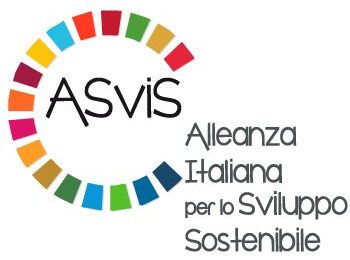- Smart City and Innovative Bicycle Sharing: the case of Pune (India) - 18 September 2018
- The Reality of Federalism in the European Union: a Federation Sui Generis or the Organization of the Regulation? - 11 September 2018
- International Cooperation and Foreign Policy: Turkey’s Withdraw of Support from the Assad Regime - 11 September 2018
Cities across the world are rediscovering bicycles to reduce suicidal emissions in their cities. Ever increasing fuel costs, and the need to reduce commuting time, environmental concerns, quality of life are some of the core reasons behind this transformation. The viral success of “Velib bicycle sharing system” in Paris has inspired many local governments and municipal corporations around the world. Lessons learnt were quickly picked up and implemented in cities such as Montreal, Bogota, Hangzhou.
Today, bicycle sharing systems are operational in over 200 cities around the world such as London, Berlin, Washington DC, New York, Toronto, Montreal, Barcelona but can Indian cities paddle into the future too? Traditionally bicycles have played a very important role in supporting the mobility and livelihoods of the urban poor for decades. In a study dating back to 1979 most bicyclists have been from lowest income groups belonging to unskilled category. (Replogle, 1992) Bicyclists in India even today are “Captive users” (Paramjeet Das Gupta, 2016). Apart from the social challenge, urban infrastructure in India has been biased in favor of the motorized vehicles. This is due to lack of reaction to extreme growth of motorized vehicles, and adaptive urban planning. Furthermore, poor urban planning in many major cities has also led to congestion on roads resulting in road widening and construction of flyovers. These two infrastructures have also been considered as symbols of world class cities. (Abhijit Datey,National Resource Centre for Ministry of Housing and Urban Poverty Alleviation,Government of India). But this trend is slowly changing for the good. With more and more Indian cities such as Pune, Chandigarh, Chennai, Mysore and Bangalore are investing in a proper bicycle infrastructure and encouraging public private partnerships. This bicycle infrastructure has also been integrated effectively into the new “smart city mission” or “smart city project” launched by the Government of India. This project aims at urban innovation through policy integration.
 Figure 1: Youth engagement in bicycle sharing. Source: HumptyDumpty.com
Figure 1: Youth engagement in bicycle sharing. Source: HumptyDumpty.com
What does the term “smart city” refer to? It can mean different things to different communities. The conceptualization of smart city therefore varies from city to city and country to country. The definitional boundaries required to guide this new smart city mission were aimed at the entire urban eco-system which focuses on four main pillars of development – institutional, physical, social and economic infrastructure. Every city developed their independent road maps of “smart mission” which were to be achieved by 2020.
Pune was among the 100 cities that was selected for the “smart city mission”, the approach for Pune smart city was towards decent quality of life to its citizens, a clean and sustainable environment and application of “smart solutions” Apart from core infrastructure elements in a smart city, the municipal corporation emphasized on public transport and bicycle infrastructure. (LTD., 2017 )
After extensive multi-stakeholder dialogues Pune launched a bicycle sharing app which enables citizens to rent and share bicycles on hourly basis. The first pilot program was launched in Aundh and Savitribai Phule university. This initiative was co-sponsored by Zoomcar’s (PEDL), Pune Smart city development corporation limited (PSCDL), OFO and will be implemented as a part of “Smart city” project in Pune. Due to the high density of youngsters and university students in the area, the pilot project proved to be a success, but only raising ambition, providing and maintaining proper cycle infrastructure will make this project a success throughout the city by 2020.
Following the success of the pilot project, city officials have started scouting for the most popular transit points by considering the demographic distribution of the city and determining the most optimal parking spots. But despite ambitious plans, Pune municipal corporation and Pune smart city development corporation limited have yet to select the full coverage area of bicycle lanes and identify priority transit nodes. Users of the Public bicycle sharing app can easily check out a cycle from any cycle station at any time of the day, use it and then return it to any cycle station nearby by just scanning the QR code on the bicycle. Such cycle stations are usually placed near popular destinations and bus stops. Users can also make payments via credit or debit card after filling out the registration form. For general safety measures, the cycles are equipped with GPS tracking to prevent vandalism.
Typically, the city governments are responsible for preparing the PBS plans, setting up the system but in Pune the bicycle sharing app related responsibilities are outsourced to private actors. This is mainly because Pune is an IT hub and this move ensures apps stability and engagement with the IT sector in Pune. This app will be available for both IOS and android users. This was one of the first substantive efforts to introduce public cycle sharing in Pune, an amount of 10 crores INR was dedicated to set up an effective bicycle infrastructure in the city. This will not only curb the growing air pollution, but also reduce traffic in the city. This eco-friendly as well as people centric smart initiative by the government is aimed to rebrand Pune as a “City of Cycle”.
While Pune has made unsuccessful attempts in the past to have bicycle lanes, what sets this initiative apart is the method of implementation through multi-stakeholder dialogues and financing coming directly through public private partnerships (PPP) mode.
The previous failures were mainly due to unsafe cycling infrastructure which often lead to mixing of traffic in slower speed environment, poor marketing, social bias towards bicycles and no public engagement, vandalism and thefts all of which have been faced head on this time. The city’s municipal commissioner Mr. Kunal Kumar has ambitious plans to have over 50,000 units of cycles deployed in the city by 2019 which will seriously curb the vehicle usage in the city. Startup owners in the cycle industry have also started considering this as a profitable business and are expecting returns in the next six to seven months.

Figure 2: Bicycle sharing app. Source: Xinhua silk road
Even though investments are being made, there is a need to urge public engagement and public awareness of such environment friendly initiatives even more. Complete operationalization of this innovative bicycle sharing project will be a major challenge without repeated workshops, public awareness regimes led by environmental groups. Therefore, local groups such as the Rotary club of Pune are doing their best to close this gap through their awareness camps in schools, colleges and societies. “We need smart people living in this smart city” says the youth re-presentative of Rotary club Pournima Barhate. The Rotary club along with the city’s municipal office are aiming for an inclusive implementation of this ambitious project so that no one is left behind on this ride!
Bibliography
- Abhijit Datey1, V. D. Walking and Cycling in Indian Cities: A Struggle. Ahmedabad: Centre of Urban Equity .
- LTD., P. s. (2017 ). A sight set firmly on smart pune . Pune .
- Paramjeet Das Gupta, K. P. (2016). Bicycle Use in Indian Cities: Understanding the Opportunities and Threats. ResearchGate .
- Replogle. (1992). Bicycles and Cycle-Rickshaws in Asian Cities. Transportation Research Record, 76-84.
- Surabeshwar Praharaj, Jung Hoon Han, Scott Hawken (March 2018)
- Urban innovation through policy integration: Critical perspectives from 100 smart cities mission in India.
- https://punesmartcity.in/ (Pune smart city project official website for press release)
- https://pmc.gov.in/en/ (Pune municipal corporation official website)
- Smartcities.gov.in (Smart cities official website)
- The economic times
- The Times of India
- Hindustan Times








